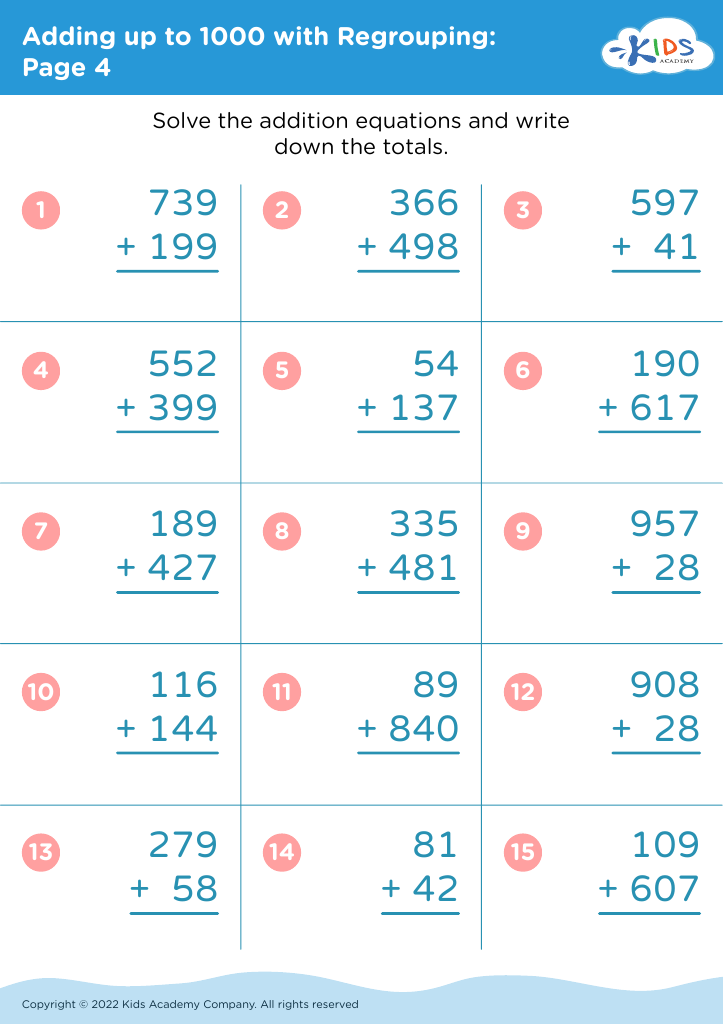Fraction comparison Adding up to 1000 with Regrouping Worksheets for Ages 6-8
3 filtered results
-
From - To
Discover our engaging "Fraction Comparison Adding up to 1000 with Regrouping Worksheets" designed specifically for children ages 6-8. These worksheets provide a fun and interactive way for young learners to understand fraction comparison while honing their math skills. With a focus on regrouping and working with larger numbers, these worksheets help children build confidence in their understanding of fractions, addition, and subtraction. Our thoughtfully designed activities encourage critical thinking and problem-solving skills, making learning enjoyable and effective. Perfect for classroom settings or home practice, these worksheets are a valuable resource for any young mathematician looking to enhance their understanding of fractions.
Fraction comparison and regrouping are essential mathematical concepts for students aged 6-8 as they lay the groundwork for future math skills. Understanding how to compare fractions fosters critical thinking. It helps children grasp relationships between numbers, which is key in everyday life, such as sharing snacks or understanding portions in recipes.
Moreover, introducing the idea of adding up to 1000 with regrouping aids students in becoming proficient with place value and multi-digit arithmetic. As they learn to regroup, they develop problem-solving skills and the ability to manipulate numbers flexibly, which is crucial for more advanced math concepts later on. These skills are foundational not only in mathematics but also in developing logical reasoning abilities applicable across subjects.
Teachers and parents should care about these concepts because they empower children to make confident calculations, encouraging perseverance when faced with challenging problems. Furthermore, fostering a strong math foundation during these formative years instills a lifelong love for learning and prepares students for real-world situations, such as budgeting or measuring—skills they will inevitably use throughout their lives. Ultimately, investing time and effort in these crucial concepts equips children with the tools for academic success and everyday functioning.
















